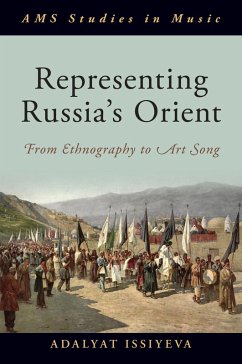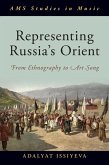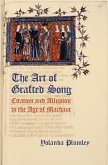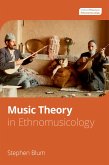Throughout history, Russia's geo-political and cultural position between the East and West has shaped its national identity.
Representing Russia's Orient tells the story of how Russia's imperial expansion and encounters with its Asian neighbors influenced the formation and development of Russian musical identity in the long nineteenth century. While Russia's ethnic minorities, or
inorodtsy, were located at the geographical and cultural periphery, they loomed large in composers' perception and musical imagination and became central to the definition of Russianness itself. Drawing from a long-forgotten archive of Russian musical examples, visual art, and ethnographies, author Adalyat Issiyeva offers an in-depth study of Russian art music's engagement with oriental subjects. Within a complex matrix of politics, competing ideological currents, and social and cultural transformations, some Russian composers and writers developed multidimensional representations of oriental "others" and sometimes even embraced elements of Asian musical identity. In three detailed case studies--on the leader of the Mighty Five, Milii Balakirev, Decembrist sympathizer Alexander Aliab'ev, and the composers affiliated with the Music-Ethnography Committee--Issiyeva traces how and why these composers adopted "foreign" musical elements. In this way, she provides a fresh look at how Russians absorbed and transformed elements of Asian history and culture in forging a national identity for themselves.
Dieser Download kann aus rechtlichen Gründen nur mit Rechnungsadresse in A, B, BG, CY, CZ, D, DK, EW, E, FIN, F, GR, HR, H, IRL, I, LT, L, LR, M, NL, PL, P, R, S, SLO, SK ausgeliefert werden.









